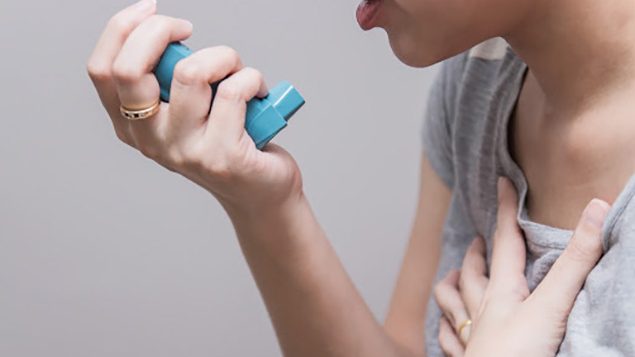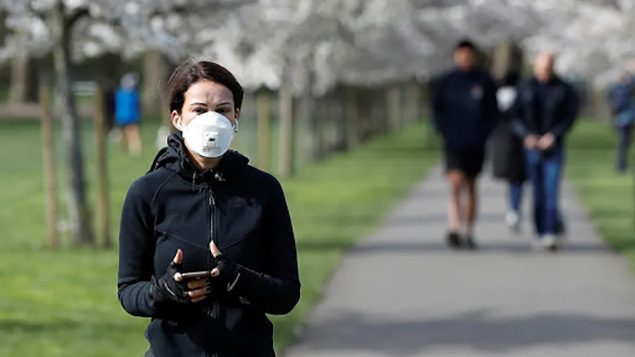When Canada’s chief public health officer, Dr. Theresa Tam, officially recommended on Wednesday that Canadians wear non-medical face masks when maintaining a two-metre distance isn’t possible, few likely imagined Tam was proffering anything other than sound advice.
But not everyone.
For millions who face medical challenges that many of the rest may not–asthma, autism, deafness–wearing a mask can be problematic.
Simply wearing a mask could create risk of an asthma attack, says Vanessa Foran, the president and CEO of Asthma Canada.

Asthma Canada says wearing a mask is not necessarily a good idea for people who suffer from the chronic disease. (Stock)
(An estimated three million people in Canada suffer from asthma.)
She says if a mask inhibits the ability of someone to breathe in any way, Asthma Canada recommends not wearing one.
“Wearing masks means breathing hot and humid air, so that can trigger asthma symptoms,” Foran tells Donna Spencer of The Canadian Press in a story published today.
“We say if they cannot wear a mask, they must ensure they’re maintaining physical distancing and practising good hand hygiene,” said Foran, adding that people with severe allergies might also find wearing a mask difficult at this time of year.
Autism Canada family support representative Dominique Payment told Spencer that adults and children with the spectrum disorder face challenges with sensory processing, as well as tactile, olfactory and nervous-system hypersensitivity that wearing a mask could aggravate.
“Because their senses are so heightened, it affects everything,” she said.

Boys are four to five times more likely to be diagnosed with autism spectrum disorder, or ASD, than girls, according to Public Health Agency of Canada statistics but many children with autism associate masks with not-so-positive experiences. (Salish Sea Behaviour Consulting/cbc.ca)
“Unfortunately this whole COVID situation and everyone wearing masks can cause some anxiety for these children because they are associating with not-so-positive experiences.”
Payment said having children put a mask on a favourite stuffed animal, or choosing fabric colour and pattern for a mask, could help prepare them to wear one.
CP’s Spencer goes on to cite a post by Clovis Bernard on the Canadian Hard of Hearing Association website earlier this month that situations are difficult to navigate in this pandemic.
“The new reality is that it is recommended to wear a mask or a face covering while going out, to reduce the community spread of the coronavirus,” Bernard wrote.
“Unfortunately, it also covers up the faces that we rely so much on for understanding people.

When they’re wearing masks, many people who are hard of hearing find it difficult to understand what people are saying. (Rafferty Baker/CBC)
“Maybe you are nervous about asking people to pull down their masks so you can understand them, but it is as if you are asking them to expose themselves to a health risk.”
He said in his experience, most people are more than willing to lower their masks for a quick second for you provided the circumstance is safe to do so.
Spencer reports that an Alaska-based company, Rapid Response PPE, has developed face masks with clear shields so hearing-impaired people can see facial cues and lip movement.
With files from The Canadian Press (Donna Spencer)







For reasons beyond our control, and for an undetermined period of time, our comment section is now closed. However, our social networks remain open to your contributions.